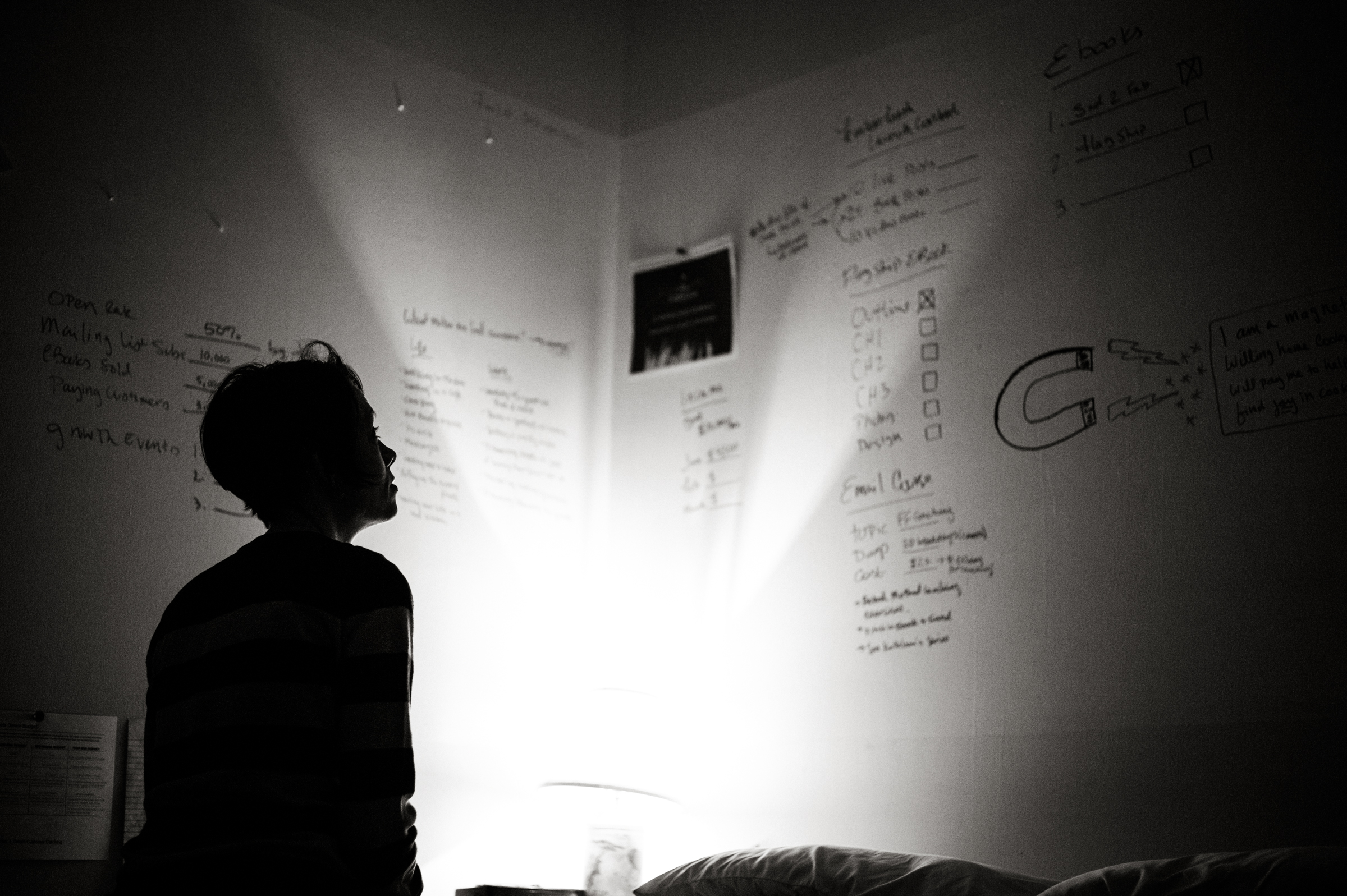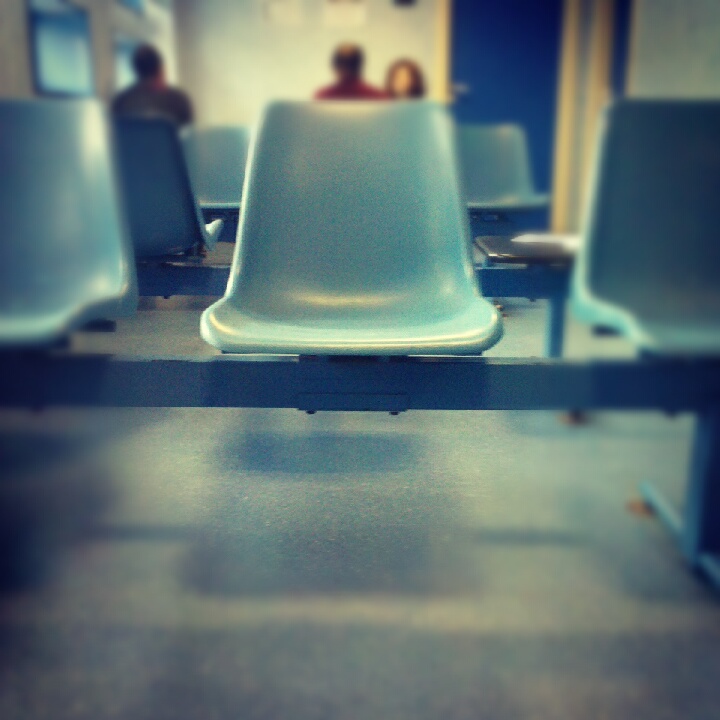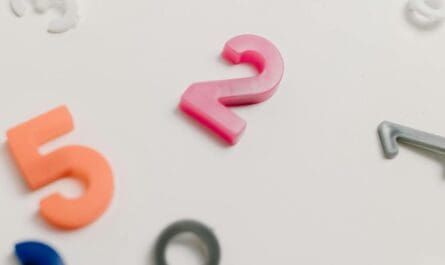When I was in eighth grade, Dad started feeling “neither here nor there.” The harder he tried to relax, the more violently he’d jitter. The only way he could stop jittering was to wave like a fancy-fin goldfish. My little sister said Dad was being “complex—like you, Joey.” Mom humphed and said Dad was suffering midlife crisis. “Don’t you dare grow up to be like him,” she said.
I Google searched his symptoms. What Wikipedia said stunned me: my father had contracted wave particle duality. I begged him to see a physicist before he degenerated into a quantum wave function. Dad flapped his arms like an excited hummingbird and refused, insisting “psychics was a scam” and that he “needed to find” himself.
By the time I started high school, Dad was strobing like disco lights and hopping harmonically like a pogo stick. Every so often, he’d fart, wiggle his hips, and flutter his arms like a Polynesian hula dancer. Fortunately, Dad held academic tenure at the university, so his paroxysms weren’t a problem at work. (In fact, wave particle duality was mundane compared to the antics of Dad’s colleagues in the statistics department: reading causality into correlations; extrapolating the past to predict the future; and passing off statistics as a hard science.)
I finally called Uncle De Broglie. Fred De Broglie wasn’t my real uncle, but a physics professor we had over for dinner when Dad needed an unsuspecting model of a mad scientist in his novel. The afternoon of the appointment, I bundled Dad into a Pauli Exclusion straightjacket and dragged him across campus to the science center.
Uncle De Broglie pinched his nose. “Pee eww!” he said from behind a droopy Einstein mustache. He squared Dad and integrated him. “You’re diverging.”
Dad froze in mid fart. He pulled up the waist of his pants and touched his zipper. “You mean I’m nonintegrable?”
“No, not over Euclidean space,” De Broglie said. “Lucky for you, space is foamy at the Planck scale.” He handed Dad a bottle of epsilons. “Take the limit to zero twice a day. If you’re not renormalized by next year, I’ll request funds from your insurance company to try a new nonperturbative methodology for canceling anomalies.”
By the time I was studying for college entrance exams, Dad was tunneling. At first, he’d tunnel back home every day and tell us about Copenhagen or another exotic destination. Over the next months, his absences grew longer. Upon his return, he’d regaled my sister and me with elaborate stories—he called them “interpretations”—about exploits with “heavy bosons” in “many other worlds.” Then he’d vanish again.
Uncle De Broglie set up Josephson junctions sandwiched between layers of superconducting plates to trap Dad. He injected the contraption with phonons and set it on Dad’s imitation cowhide armchair in front of the TV. Sis and I carried our homework to the sofa and waited there for Dad every night.
The trap worked. At first, Dad sparkled and moaned, “Eureka! I found myself!” He rambled deliriously about “delicious bosons” surrounding and absorbing him into “their equilibrium wave function.”
Uncle De Broglie rushed over and adjusted some knobs. “Your father’s found himself,” he declared. “He’s tunneling between the plates, now indistinguishable from the other bosons.”
“What a relief,” I said. “Mom won’t have to worry that he’s consorting with strange bosons in an alien bathroom.”
Sis turned to the kitchen door. “Mom!” she hollered. “Uncle De Broglie made Dad indistinguishable!”
“A Bose-Einstein gas,” De Broglie said. “A condensate.”
“That’s nice,” mom hollered back. “Would you like condensed milk in your coffee, Professor?”
Things at home went back to normal now that we knew Dad was trapped on his favorite spot in front of the TV. I went away to college on the east coast. The university promoted Dad to a prestigious chair so that he wouldn’t have to do any work.
When I returned home for the holidays in my senior year of college, Dad was as indistinguishable as ever. “A quake knocked out the power and he almost evaporated,” Mom said. “The backup generator kicked on just in time.” On my last day before heading back east, I visited Professor De Broglie. He assured me that being an indistinguishable boson didn’t hurt and that, wave or particle, we were all hologram projections of information residing at the edge of the universe. “Joey,” he said, “the edge of the universe is like the surface of a black hole.”
“Jeez,” I said. “All this time I thought I was in America. I need to find myself.”
Sitting on a window seat during the plane ride east, I felt lost, neither here nor there. Dad had found himself by becoming indistinguishable. The double reflection in the two-pane glass I stared into showed my father’s face, twice. The faces looked at each other and then at me. I looked back, indistinguishable.
Originally appeared in Quantum Shorts: Collected Flash Fiction Inspired by Quantum Physics published by the Centre for Quantum Technologies in collaboration with Scientific American and Nature (2014).
Kenton K. Yee has placed short fiction & poetry in The Indianapolis Review, The Los Angeles Review, Plume Poetry, PANK, The Rupture, Necessary Fiction, and Hobart, among other journals. An Iowa, MIT, and Stanford alumnus, Kenton splits his time between northern California and an undisclosed location.




